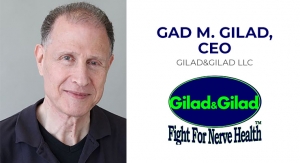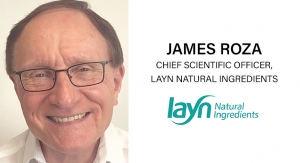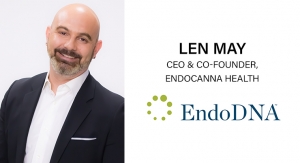By Erik Goldman, Holistic Primary Care05.01.17
Cast your mind back to the mid-1990s.... The Dietary Supplement Health and Education Act (DSHEA) had just passed. The newly christened “dietary supplement industry” was breathing a first breath of marketing freedom and preparing for exponential expansion.
Researchers at major medical schools like Harvard and Duke were publishing eye-opening papers about the growth of “alternative” medicine, and urging mainstream healthcare players to pay serious attention to things like herbs, vitamins, acupuncture, biofeedback and stress management.
Congress was ramping up funding for the recently re-branded National Center for Complementary and Alternative Medicine (NCCAM), and cohorts of individuals with independent minds and independent means were establishing well-endowed philanthropies to nurture research and facilitate broader implementation of non-pharma medical alternatives.
Seeing the swelling public demand for holistic alternatives to drugs and surgery, administrators at several major hospital systems moved to establish clinics offering some holistic options in zen-like spa settings that would attract new prospective patients into their referral streams.
At the same time, a host of innovative diagnostic testing labs, practitioner-focused nutraceutical companies, publishing enterprises, and educational organizations were bursting forth in a rush to meet the rising demand for these “new” approaches to healthcare.
So began the era of “integrative medicine.” The period from 1995 through 2010 was marked by a zealous nationwide surge of activity aimed at bringing previously marginalized modalities—everything from Ayurveda to zinc supplementation—under the purview of conventionally trained physicians, and into the spectrum of options offered at hospitals, clinics and medical schools.
During that time, numerous organizations began offering continuing medical education programs on “holistic” or “integrative” or “complementary and alternative medicine” (CAM). Physician attendance at these meetings grew steadily, from dozens to hundreds, and finally to thousands. Integrative fellowships and certification programs emerged, and some practitioners went as far as pushing for formal recognition of integrative medicine as a distinct medical specialty.
No doubt, the integrative wave that began in the 1990s has had a significant impact on U.S. healthcare.
Many, if not most, conventionally trained medical professionals now recommend at least some dietary supplements, and a growing number dispense them in their practices. This has translated into steady annual growth rates of 7-9% for the “B2P” (business to practitioner) channel of the industry, and has contributed to the expansion of supplement sales on the retail side.
Physicians today freely talk about things like the microbiome, leaky gut, adrenal fatigue, gluten sensitivity, the importance of omega-3s, the “gut-brain” connection and other topics once considered “quackery” or “woo-woo” not so long ago. These concepts are making their way into medical school curricula—albeit grudgingly at many institutions.
Many of the nation’s prominent medical centers have integrative clinics, and managed care plans have adopted some of the language—if not the true values and practices—of the integrative medicine movement.
Recently, though, it appears that the momentum of integrative medicine has peaked, and a decline has begun.
High-Profile Closures
Over the last two years, two of the country’s largest flagship integrative clinics have closed. Others struggle against dire economic winds, hostile bureaucracies, or both. At the same time, two of the most significant and generous philanthropic funds dedicated to the integrative cause have terminated. These closures are significant on both a practical and a symbolic level.
The Bravewell Collaborative: In June 2015, the much-celebrated Bravewell Collaborative ceased its operations after more than a decade of funding large-scale projects to integrate holistic alternatives into medical centers across the country. Founded by Bill and Penny George (Medtronic) and John and Christy Mack (Morgan Stanley), Bravewell’s vision was given life by a who’s who of holistic medical luminaries. It’s multi-faceted research, policy, and public education work focused on re-humanizing medical education and clinical practice.
Over the course of its 13-year span, the collaborative helped to define, articulate and promote core principals of integrative medicine. Among its many projects, Bravewell fostered creation of a network of clinics, research programs, and training curricula at major academic centers.
From its inception, Bravewell’s founders intended it to be time-limited. “We gave ourselves 10 to 15 years to change how Americans thought about their health and the kind of healthcare they received, and to bring about the cultural change necessary to create a healthier nation,” said co-founder Christy Mack in The Bravewell Story, a recent book by Bonnie Horrigan.
By the end of 2014, having reached many of their stated goals, Bravewell’s founders decided it was time to end the project.
University of Arizona Integrative Health Center: Just one year later, in July 2016, the University of Arizona’s Integrative Health Center closed its doors, despite overwhelming public interest and stellar patient satisfaction scores.
Founded in 1994 by Dr. Andrew Weil and his colleagues, and strongly connected to UA’s seminal integrative medicine fellowship training programs, the Integrative Health Center was, in many ways, a hothouse for development of new models of care.
It fell victim to a shift in corporate leadership when Banner Health—a non-profit regional hospital network acquired the University’s clinics and re-prioritized its operations. Unlike Bravewell, the UA center did not have a built-in expiration date. Its sudden closure was not planned or welcomed by its founders, its staff, or the community it served.
Beth Israel Center for Health & Healing: A few months after the UA closure, the Mount Sinai-Beth Israel hospital system in New York City announced the shutdown of its longstanding Center for Health & Healing (formerly known as the Continuum Center), a site that many in the field considered to be a paradigm for hospital-based integrative clinics.
Headed by Dr. Woodson Merrell, and staffed by ace integrative clinicians, the center was popular with holistically-minded New Yorkers, and gave hope that this sort of care could gain a real foothold within a conventional hospital universe.
The clinic was in the midst of a capital-intensive expansion when Beth Israel’s corporate parent merged with the massive Mt. Sinai hospital network. The new management saw the integrative clinic as a cash-drain that was simply not generating enough revenue to justify its continued operation.
As with the Arizona center, corporate administrators forced a closure, to the chagrin of the center’s staff and the many New Yorkers who sought care at Continuum.
The Samueli Institute: At the end of 2016, the Samueli Institute announced that it was ceasing operations after 15 years of leading-edge interdisciplinary research and highly influential policy work.
Much like Bravewell, the Samueli Instititue was an independent agency founded by wealthy individuals with personal interest in transforming American medicine. Henry Samueli, an engineer and entrepreneur who built a substantial fortune in the semiconductor industry, and his wife Susan began the project in 2001.
The Samuelis wanted to support academically rigorous research on health, well-being, and resilience. But their vision extended beyond academia. From the get-go they sought to translate data into real-world practice throughout the nation’s private, public, and military health systems.
To lead their mission, they recruited Dr. Wayne Jonas, who for years led research fellowships at the Walter Reed Army Medical Center, and who served as director of the Office of Alternative Medicine (now called National Center for Complementary & Integrative Health).
The Samueli Institute has produced more than 700 peer-reviewed research papers and guidance documents, mentored dozens of integrative medicine thought leaders, validated previously marginalized modalities, and introduced holistic, non-pharmaceutical therapies into many large institutions.
It was particularly effective in finding inroads with the military. Thanks in large part to Samueli-funded initiatives, the VA now has robust integrative medicine programs throughout its hospitals and clinics. These are racking up a strong track record on effective non-drug alternatives for chronic pain and PTSD.
The principles detailed in the 2010 Samueli-sponsored report, “Total Force Fitness for the 21st Century,” have been embraced and incorporated across the Department of Defense and in many branches of military medicine.
Dr. Jonas said the decision to close Samueli arose in part from a downturn in the federal appropriations on which the institute depends, and in part because the founders felt the institute has completed its work.
“When we started out, there really wasn’t much complementary and integrative medicine going on in the VA or the military,” Dr. Jonas said in a Huffington Post interview with John Weeks, author of the Integrator blog. “The work we were doing is now going on inside the DoD and the VA. Our work is not so necessary anymore. What we did has worked....what we set out to do is done.”
Failure to Scale
But outside the military, in the realm of civilian healthcare—dominated as it is by for-profit insurers and hospital networks—the Samueli Institute’s work has not had quite the same impact. The same could be said of the Bravewell Collaborative’s impact outside of the relatively sheltered world of medical academia.
Most insurance plans still do not cover holistic and functional medicine, and coverage is marginal in Medicare and Medicaid plans. Those hospitals that have embraced “integrative” medicine tend to silo it in distinct clinics rather than truly integrating its principles into routine patient care.
As the sudden forced closures of the centers in Arizona and New York illustrate, hospital-based integrative centers dwell on precarious ground, and they can be dashed quickly if hospital administrators feel the numbers just aren’t adding up.
For all its successes—and the needle has moved a good bit in the last 20 years—the integrative medicine movement failed to scale.
While most Americans have ready access to dietary supplements and a wealth of information about natural healthcare, only a small minority has routine access to affordable integrative medical services provided by fully trained and licensed healthcare professionals.
Practitioner membership in the organizations committed to integrative medicine has hit a plateau in the last few years, as has attendance at conferences. While many organizations are solid and thriving, they are still small—both in numbers and in political clout—compared to the associations representing mainstream medical specialties.
As was shown in an Institute for Functional Medicine survey last year, physicians often take a significant income hit—sometimes as much as 30%—when they leave conventional drug-based, insurance-dominated practices and go full-time into alternative care models. This is a big reason why integrative medicine is more of a hobby than a full-time living for many of its would-be adherents in clinical practice.
On the hospital network side, where big-ticket procedures mean big revenue, integrative medicine’s emphasis on preventing costly episodes looks like a questionable investment. Hospitals make money by doing invasive procedures, not preventing them.
A Turning of the Tide
The integrative medicine pioneers who took center-stage in the late 1990s—the Samuelis, Dr. Jonas, the Bravewell Founders, Drs. Andrew Weil and Victoria Maizes at the University of Arizona, Dr. Woody Merrell and his team at Beth Israel, Dr. Mimi Guarneri and her colleagues at Scripps, and many others—have done much to legitimize the role of nutrition, stress management, and botanical medicine in patient care.
In many ways, and by many roads, they brought us to a tipping point. It will take significant realignment of healthcare’s economic incentives to bring about the actual tip.
One could argue that the present wave of closures reflects the inherent limitations of an “integrative” model developed almost exclusively by conventionally-trained MDs, for conventionally-trained MDs, and guided by the idea that a diverse range of practitioners and healing practices could be—and should be—molded to fit into hospital-centric care systems.
The Integrative Medicine movement was always about “integrating” other modalities into the toolbox of allopathic medicine; it never suggested that allopathic medicine must be integrated into the broad spectrum of healing modalities. It also never challenged the overbearing role that for-profit insurers play in determining what is, and what is not, considered “real” medicine.
Perhaps these are tasks for the next generation of medical revolutionaries.
The movement epitomized by the Samueli Institute, the Bravewell Collaborative, and the integrative centers was led by people who began their careers in the 1960s and 1970s, and who came to prominence in the 1990s. They made major advances in bringing greater open-mindedness to what was then a very rigid, authoritarian field.
It is now up to a new generation to redefine the vision for a new era, and carry the momentum forward into its next iteration. What that will look like remains to be seen.
Erik Goldman
Holistic Primary Care
Erik Goldman is co-founder and editor of Holistic Primary Care: News for Health & Healing, a quarterly medical publication reaching about 60,000 physicians and other heathcare professionals nationwide. He is also co-producer of the Practitioner Channel Forum, an annual executive level gathering focused on challenges and opportunities in the health practitioner channel. For more information: www.TPCForum.com.
Researchers at major medical schools like Harvard and Duke were publishing eye-opening papers about the growth of “alternative” medicine, and urging mainstream healthcare players to pay serious attention to things like herbs, vitamins, acupuncture, biofeedback and stress management.
Congress was ramping up funding for the recently re-branded National Center for Complementary and Alternative Medicine (NCCAM), and cohorts of individuals with independent minds and independent means were establishing well-endowed philanthropies to nurture research and facilitate broader implementation of non-pharma medical alternatives.
Seeing the swelling public demand for holistic alternatives to drugs and surgery, administrators at several major hospital systems moved to establish clinics offering some holistic options in zen-like spa settings that would attract new prospective patients into their referral streams.
At the same time, a host of innovative diagnostic testing labs, practitioner-focused nutraceutical companies, publishing enterprises, and educational organizations were bursting forth in a rush to meet the rising demand for these “new” approaches to healthcare.
So began the era of “integrative medicine.” The period from 1995 through 2010 was marked by a zealous nationwide surge of activity aimed at bringing previously marginalized modalities—everything from Ayurveda to zinc supplementation—under the purview of conventionally trained physicians, and into the spectrum of options offered at hospitals, clinics and medical schools.
During that time, numerous organizations began offering continuing medical education programs on “holistic” or “integrative” or “complementary and alternative medicine” (CAM). Physician attendance at these meetings grew steadily, from dozens to hundreds, and finally to thousands. Integrative fellowships and certification programs emerged, and some practitioners went as far as pushing for formal recognition of integrative medicine as a distinct medical specialty.
No doubt, the integrative wave that began in the 1990s has had a significant impact on U.S. healthcare.
Many, if not most, conventionally trained medical professionals now recommend at least some dietary supplements, and a growing number dispense them in their practices. This has translated into steady annual growth rates of 7-9% for the “B2P” (business to practitioner) channel of the industry, and has contributed to the expansion of supplement sales on the retail side.
Physicians today freely talk about things like the microbiome, leaky gut, adrenal fatigue, gluten sensitivity, the importance of omega-3s, the “gut-brain” connection and other topics once considered “quackery” or “woo-woo” not so long ago. These concepts are making their way into medical school curricula—albeit grudgingly at many institutions.
Many of the nation’s prominent medical centers have integrative clinics, and managed care plans have adopted some of the language—if not the true values and practices—of the integrative medicine movement.
Recently, though, it appears that the momentum of integrative medicine has peaked, and a decline has begun.
High-Profile Closures
Over the last two years, two of the country’s largest flagship integrative clinics have closed. Others struggle against dire economic winds, hostile bureaucracies, or both. At the same time, two of the most significant and generous philanthropic funds dedicated to the integrative cause have terminated. These closures are significant on both a practical and a symbolic level.
The Bravewell Collaborative: In June 2015, the much-celebrated Bravewell Collaborative ceased its operations after more than a decade of funding large-scale projects to integrate holistic alternatives into medical centers across the country. Founded by Bill and Penny George (Medtronic) and John and Christy Mack (Morgan Stanley), Bravewell’s vision was given life by a who’s who of holistic medical luminaries. It’s multi-faceted research, policy, and public education work focused on re-humanizing medical education and clinical practice.
Over the course of its 13-year span, the collaborative helped to define, articulate and promote core principals of integrative medicine. Among its many projects, Bravewell fostered creation of a network of clinics, research programs, and training curricula at major academic centers.
From its inception, Bravewell’s founders intended it to be time-limited. “We gave ourselves 10 to 15 years to change how Americans thought about their health and the kind of healthcare they received, and to bring about the cultural change necessary to create a healthier nation,” said co-founder Christy Mack in The Bravewell Story, a recent book by Bonnie Horrigan.
By the end of 2014, having reached many of their stated goals, Bravewell’s founders decided it was time to end the project.
University of Arizona Integrative Health Center: Just one year later, in July 2016, the University of Arizona’s Integrative Health Center closed its doors, despite overwhelming public interest and stellar patient satisfaction scores.
Founded in 1994 by Dr. Andrew Weil and his colleagues, and strongly connected to UA’s seminal integrative medicine fellowship training programs, the Integrative Health Center was, in many ways, a hothouse for development of new models of care.
It fell victim to a shift in corporate leadership when Banner Health—a non-profit regional hospital network acquired the University’s clinics and re-prioritized its operations. Unlike Bravewell, the UA center did not have a built-in expiration date. Its sudden closure was not planned or welcomed by its founders, its staff, or the community it served.
Beth Israel Center for Health & Healing: A few months after the UA closure, the Mount Sinai-Beth Israel hospital system in New York City announced the shutdown of its longstanding Center for Health & Healing (formerly known as the Continuum Center), a site that many in the field considered to be a paradigm for hospital-based integrative clinics.
Headed by Dr. Woodson Merrell, and staffed by ace integrative clinicians, the center was popular with holistically-minded New Yorkers, and gave hope that this sort of care could gain a real foothold within a conventional hospital universe.
The clinic was in the midst of a capital-intensive expansion when Beth Israel’s corporate parent merged with the massive Mt. Sinai hospital network. The new management saw the integrative clinic as a cash-drain that was simply not generating enough revenue to justify its continued operation.
As with the Arizona center, corporate administrators forced a closure, to the chagrin of the center’s staff and the many New Yorkers who sought care at Continuum.
The Samueli Institute: At the end of 2016, the Samueli Institute announced that it was ceasing operations after 15 years of leading-edge interdisciplinary research and highly influential policy work.
Much like Bravewell, the Samueli Instititue was an independent agency founded by wealthy individuals with personal interest in transforming American medicine. Henry Samueli, an engineer and entrepreneur who built a substantial fortune in the semiconductor industry, and his wife Susan began the project in 2001.
The Samuelis wanted to support academically rigorous research on health, well-being, and resilience. But their vision extended beyond academia. From the get-go they sought to translate data into real-world practice throughout the nation’s private, public, and military health systems.
To lead their mission, they recruited Dr. Wayne Jonas, who for years led research fellowships at the Walter Reed Army Medical Center, and who served as director of the Office of Alternative Medicine (now called National Center for Complementary & Integrative Health).
The Samueli Institute has produced more than 700 peer-reviewed research papers and guidance documents, mentored dozens of integrative medicine thought leaders, validated previously marginalized modalities, and introduced holistic, non-pharmaceutical therapies into many large institutions.
It was particularly effective in finding inroads with the military. Thanks in large part to Samueli-funded initiatives, the VA now has robust integrative medicine programs throughout its hospitals and clinics. These are racking up a strong track record on effective non-drug alternatives for chronic pain and PTSD.
The principles detailed in the 2010 Samueli-sponsored report, “Total Force Fitness for the 21st Century,” have been embraced and incorporated across the Department of Defense and in many branches of military medicine.
Dr. Jonas said the decision to close Samueli arose in part from a downturn in the federal appropriations on which the institute depends, and in part because the founders felt the institute has completed its work.
“When we started out, there really wasn’t much complementary and integrative medicine going on in the VA or the military,” Dr. Jonas said in a Huffington Post interview with John Weeks, author of the Integrator blog. “The work we were doing is now going on inside the DoD and the VA. Our work is not so necessary anymore. What we did has worked....what we set out to do is done.”
Failure to Scale
But outside the military, in the realm of civilian healthcare—dominated as it is by for-profit insurers and hospital networks—the Samueli Institute’s work has not had quite the same impact. The same could be said of the Bravewell Collaborative’s impact outside of the relatively sheltered world of medical academia.
Most insurance plans still do not cover holistic and functional medicine, and coverage is marginal in Medicare and Medicaid plans. Those hospitals that have embraced “integrative” medicine tend to silo it in distinct clinics rather than truly integrating its principles into routine patient care.
As the sudden forced closures of the centers in Arizona and New York illustrate, hospital-based integrative centers dwell on precarious ground, and they can be dashed quickly if hospital administrators feel the numbers just aren’t adding up.
For all its successes—and the needle has moved a good bit in the last 20 years—the integrative medicine movement failed to scale.
While most Americans have ready access to dietary supplements and a wealth of information about natural healthcare, only a small minority has routine access to affordable integrative medical services provided by fully trained and licensed healthcare professionals.
Practitioner membership in the organizations committed to integrative medicine has hit a plateau in the last few years, as has attendance at conferences. While many organizations are solid and thriving, they are still small—both in numbers and in political clout—compared to the associations representing mainstream medical specialties.
As was shown in an Institute for Functional Medicine survey last year, physicians often take a significant income hit—sometimes as much as 30%—when they leave conventional drug-based, insurance-dominated practices and go full-time into alternative care models. This is a big reason why integrative medicine is more of a hobby than a full-time living for many of its would-be adherents in clinical practice.
On the hospital network side, where big-ticket procedures mean big revenue, integrative medicine’s emphasis on preventing costly episodes looks like a questionable investment. Hospitals make money by doing invasive procedures, not preventing them.
A Turning of the Tide
The integrative medicine pioneers who took center-stage in the late 1990s—the Samuelis, Dr. Jonas, the Bravewell Founders, Drs. Andrew Weil and Victoria Maizes at the University of Arizona, Dr. Woody Merrell and his team at Beth Israel, Dr. Mimi Guarneri and her colleagues at Scripps, and many others—have done much to legitimize the role of nutrition, stress management, and botanical medicine in patient care.
In many ways, and by many roads, they brought us to a tipping point. It will take significant realignment of healthcare’s economic incentives to bring about the actual tip.
One could argue that the present wave of closures reflects the inherent limitations of an “integrative” model developed almost exclusively by conventionally-trained MDs, for conventionally-trained MDs, and guided by the idea that a diverse range of practitioners and healing practices could be—and should be—molded to fit into hospital-centric care systems.
The Integrative Medicine movement was always about “integrating” other modalities into the toolbox of allopathic medicine; it never suggested that allopathic medicine must be integrated into the broad spectrum of healing modalities. It also never challenged the overbearing role that for-profit insurers play in determining what is, and what is not, considered “real” medicine.
Perhaps these are tasks for the next generation of medical revolutionaries.
The movement epitomized by the Samueli Institute, the Bravewell Collaborative, and the integrative centers was led by people who began their careers in the 1960s and 1970s, and who came to prominence in the 1990s. They made major advances in bringing greater open-mindedness to what was then a very rigid, authoritarian field.
It is now up to a new generation to redefine the vision for a new era, and carry the momentum forward into its next iteration. What that will look like remains to be seen.
Erik Goldman
Holistic Primary Care
Erik Goldman is co-founder and editor of Holistic Primary Care: News for Health & Healing, a quarterly medical publication reaching about 60,000 physicians and other heathcare professionals nationwide. He is also co-producer of the Practitioner Channel Forum, an annual executive level gathering focused on challenges and opportunities in the health practitioner channel. For more information: www.TPCForum.com.




























